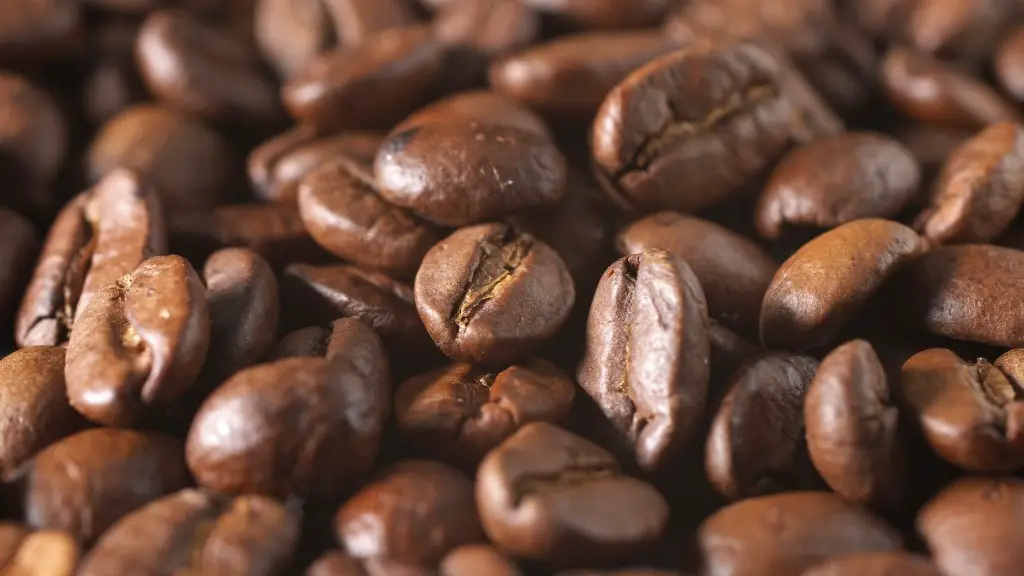Coffee is a popular beverage that is usually associated with adults. People often wonder if a 10 year-old can drink coffee. On first glance it would appear that the answer to this question is ‘no’.Nonetheless, it is important to consider the question in more detail, because banning children from drinking coffee without understanding its effects and why it is even being consumed does a disservice to both the child and the adults responsible for them.
While coffee may provide a child with a temporary burst of energy, it contains caffeine, a powerful central nervous system stimulant, which can influence a child’s developing physiology and psychology. In addition, excessive amounts of caffeine can cause sleep disturbances, an increased heart rate, digestive problems and nervousness.
Most experts agree that children should not be drinking coffee, particularly on a regular basis. According to the American Academy of Pediatrics, no caffeine, including coffee, should be consumed by children ages 12 and under. Children aged 13 to 18 should not consume more than 100 mg of caffeine a day – approximately two 8-ounce cups of coffee.
Parents should also be aware that there are many side effects associated with caffeine, such as increased blood pressure, increased heart rate, and increased levels of anxiety. Additionally, coffee can be habit-forming, and it is possible for a child to become addicted to caffeine and other stimulants. In addition, excessive consumption of coffee has been linked to later substance abuse problems.
The solution to this issue is multifaceted. Firstly, parents need to be aware of the potential risks associated with giving coffee to their children, and make an informed decision based on the risks and potential benefits. Secondly, parents need to be proactive about teaching their children about healthy alternative beverages and snacks to provide natural energy without the risks associated with coffee.
Thirdly, schools should ensure that their nutrition policies include guidelines for healthy eating and reduce the access that children have to unhealthy options, such as coffee and energy drinks. Fourthly, parents should be aware of any caffeine that is provided in other beverages, such as energy drinks and sodas, and make sure their children are not consuming these products excessively. Finally, it is important for parents to have open conversations with their children about caffeine and the potential effects it can have on their physiology and psychology.
Understanding Caffeine
In order to make an informed decision about coffee consumption, it is important to understand what caffeine is and why it triggers certain reactions in the body. Caffeine is a mild stimulant, meaning it speeds up the body’s processes, resulting in increased alertness and energy. This stimulation can occur within minutes of consumption and can last up to six hours.
Caffeine is addictive, and many people become dependent on it to fuel their days.When a person is addicted to caffeine, they experience withdrawal symptoms such as headaches, fatigue, and irritability. As it can impact children’s developing physiology and psychology, it is important to be aware of these effects.
Caffeine is found in a variety of products, such as tea, coffee, soda, and energy drinks. The amount of caffeine contained in these products varies, but it is typically around 65 – 120mg per 8oz cup of coffee or 12oz can of soda. By comparison, a cup of green or black tea contains about 40mg of caffeine.
Caffeine is also found in a variety of foods, such as chocolate and certain energy bars. Many of these products can be consumed in moderate amounts by children, however it is important to understand the specific amounts of caffeine contained in each product.
Understanding the Health Effects of Caffeine
The effects of caffeine can vary greatly and often depend on the individual’s sensitivity to it and any medical conditions they may have. Common, short-term side effects of caffeine include increased heart rate and blood pressure, insomnia, restlessness, increased anxiety levels and stomach upset. Long-term side effects can include an increased risk of heart disease, osteoporosis, Type 2 diabetes and bone fractures.
In addition to the physical effects, it is important to consider the psychological effects, such as the potential for addiction or dependency. Caffeine can become a crutch for some people in coping with stress, anxiety or exhaustion, and when it is not available, withdrawal symptoms may become more pronounced, further stressing the body and mind.
Moreover, caffeine can also have a detrimental effect on sleep, learning and attention. In children, it can affect the development of their central nervous system, as it can interfere with their natural circadian rhythm and hormone production. In addition, it can interfere with the absorption of needed nutrients and cause dehydration.
Alternatives to Caffeine
Fortunately, there are healthy alternatives to caffeine that can provide natural energy and vitality to children. Healthy snacks such as fruits, nuts and seeds are great sources of vitamins and minerals and provide lasting energy. Furthermore, whole grain, high fibre foods such as oatmeal, brown rice and quinoa are excellent sources of energy. Finally, incorporating healthy herbs and spices such as ginger, cinnamon and cardamom into meals can provide additional benefits and flavour.
In addition to food, there are a few simple lifestyle changes that can have a positive effect on energy levels, such as getting adequate sleep, exercise and relaxation. Regular exercise can provide the body with natural energy and endorphins,While getting enough sleep can help to restore energy and mental clarity. Finally, relaxation techniques such as yoga, meditation and breathing exercises can reduce stress and improve focus and clarity.
The Benefits of Coffee
Despite the potential risks of caffeine consumption, there are also some moderate benefits of coffee consumption for children. Coffee contains antioxidants which can reduce inflammation in the body and help to protect against certain diseases. In addition, coffee can stimulate cognitive function and increase alertness, focus and concentration, which can be beneficial for children who are studying or doing other mentally taxing tasks. Finally, coffee is an excellent source of essential vitamins and minerals such as magnesium, potassium, and vitamin B.
Consuming coffee in moderation may provide some of these benefits to children, however it is important to understand the potential risks and make an informed decision. It is also important to ensure that the coffee that is consumed is organic and free of sugar and artificial sweeteners. Additionally, it is important to monitor the amount of coffee consumed and ensure that it is not exceeding the recommended guidelines.
Should a 10 Year-Old Drink Coffee?
The answer to this question depends on the individual circumstances, as it is important to take into account the potential risks and benefits of coffee consumption. As mentioned, it is important to understand what caffeine is, the health effects associated with it, and any alternatives that may be available.
In the end, it is up to the parents and guardians to make an informed decision based on the facts. If coffee consumption is to be allowed, then it is important for the child to be aware of the potential risks and benefits, and for the child and adult to discuss the amount of coffee that is being consumed and any alternative options available.




